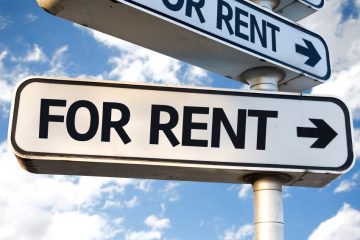Landlords Switching to Holiday Lets Could Cause Rental Crisis
Em Morley - January 31, 2020An uptick in the number of buy-to-let landlords considering switching to short-term holiday lets is sparking concern in an industry where supply is already struggling to meet demand.
New research from ARLA Propertymark estimates that as many as 470,000 privately rented homes could soon be converted to short-term and holiday rentals, in part due to legislative and tax changes in the private rental sector (PRS).
ARLA Propertymark’s research, in conjunction with Capital Economics revealed that the number of active listings on Airbnb rose by 33% in the UK from 168,000 in 2017 to 223,000 in 2018, with London being the area of highest growth (almost four-fold between 2015 and 2019).
As the number of short-term lets increases, the brunt of the change is felt by residential tenants who find that they have less choice of long-term rental properties.
In the research, the landlords of 230,000 properties said that they were ‘very likely’ to make the move to offer short-term lets. A further 240,000 said that they were ‘fairly likely’, bringing the total to 470,000.
David Cox, ARLA Propertymark chief executive, commented: “The growth in short-term lets is particularly concerning for the traditional private rented sector. As landlords are continuously faced with increased levels of legislation, it’s no surprise they are considering short-term lets as a chance to escape this.
“Unless the sector is made more attractive, landlords will continue to exit the market resulting in less available properties and increased rent costs.”
ARLA Propertymark has made the following recommendations to limit the impact of short-term lets on the private rental sector:
- Carefully consider the impact of any future regulation that may incentivise landlords to start using their properties for short-term lets and thereby reduce housing supply for local people trying to find a home
- Ensure a level regulatory playing field between short-term and long-term lets including protections for tenants and health and safety requirements
- Ensure a level taxation playing field between short-term and long-term lets so there are no advantages for commercial landlords using their properties for short-term lets
- Identify ways to improve enforcement of cases in which commercial landlords are not complying with local planning laws or the 90-day limit for short-term lets in London
- Recognise that the impact of short-term lets on housing supply is not uniform across the country and ‘one size fits all’ regulations are unlikely to be optimal
- Distinguish between using one’s primary residence for short term lets when the property is being under-utilised and commercial landlords renting out entire properties on a full-time basis
- Monitor and track the number of entire properties on sharing platforms by hosts with multiple listings in different areas to inform future policy
- Consider introducing limits on short term letting activities in areas in which there is a demonstrable impact on private rented housing supply.


Number of active holiday lets increase by as much as 33%
New research from Octane Capital reveals that the number of active holiday lets has increased by as much as 33% …

Landlords Can Now See How Much More Rent They Could Make Through Airbnb
A new rent calculator directly compares traditional rental yields to short-term holiday let yields in a range of UK cities, …

8 reasons why 2020 is the year to buy a UK holiday let
There are many fabulous locations across the UK for holidays, meaning increasingly more Brits are happy to stay in the …

Hostmaker Apologises for Holiday Let Ad seen as “an Attack on the City”
Hostmaker, the holiday lets platform, has agreed to remove its ‘anti-tenant’ adverts from the London transport network. Generation Rent, the national …

Holiday Let Websites Adding to London’s Housing Crisis, Warns RLA
New research from the Residential Landlords Association (RLA) raises serious concerns that the growth of holiday let websites is aggravating …